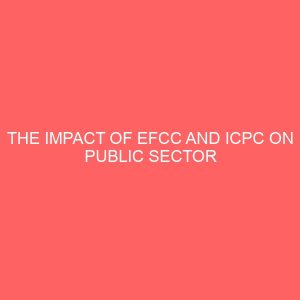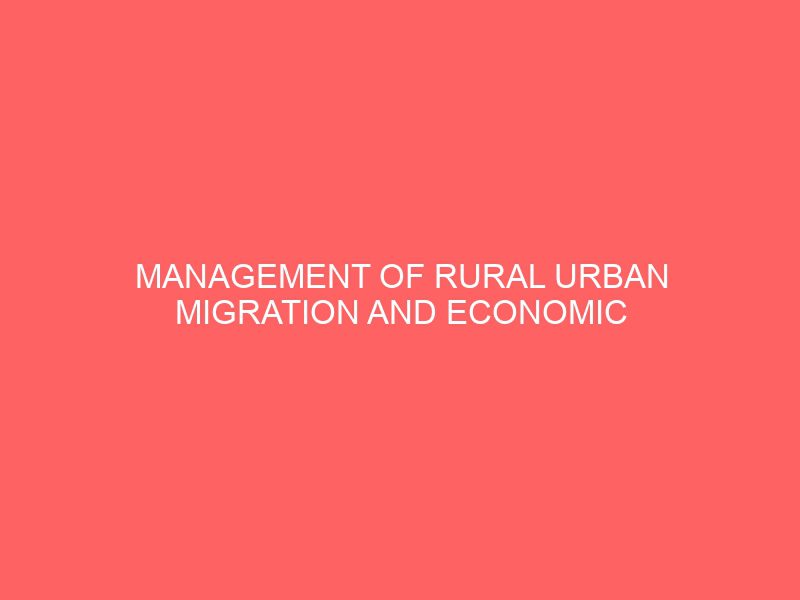Description
ABSTRACT This thesis studied the Management of Rural-Urban Migration and Economic Development in Nigeria: The case of Anambra State. Development of a Country or State depends on its ability to manage and deal with challenges that come with development, such as over-population, pressure on facilities (roads, electricity), accommodation problems, environmental pollutions and other implications. In conducting this study, the researcher elicited relevant data from both the primary and secondary sources. Questionnaire was the main instrument for data collection. Three hundred and ninety- nine (399) copies of questionnaire were administered to the respondents of the three local government areas. Subsequently, the collected data were analyzed with simple percentage, and presented in frequency tables for easy comprehension. The hypotheses were also tested through chi-square ( From  the data presentation and analysis, and discussion of results therein, the researcher arrived at the following findings: The housing estate are mostly owned by individuals or private companies and are very expensive; the transformers provided are not consummate with the population increase; the state lacks available lands for agriculture as most of the lands are affected by erosion, floods and landslides. The researcher recommends the following: Government should be in partnership with some of these individuals and companies so as eliminate accommodations problems, government should be stain that materials used for transformers are adequate while making sure that the agricultural extension programmes are well financed in real terms as this will help manage the problems of rural-urban migration and bring about development.







